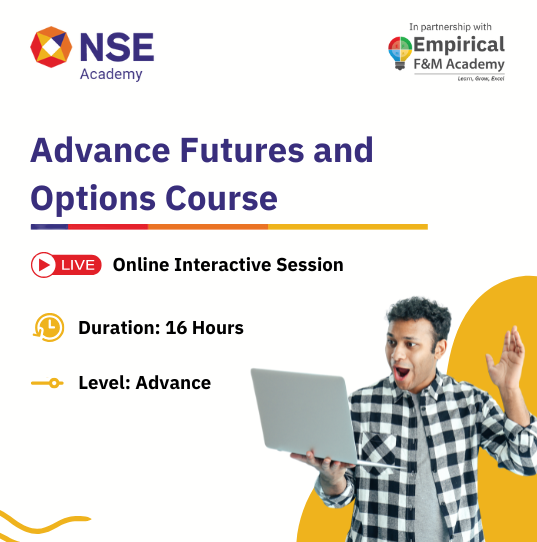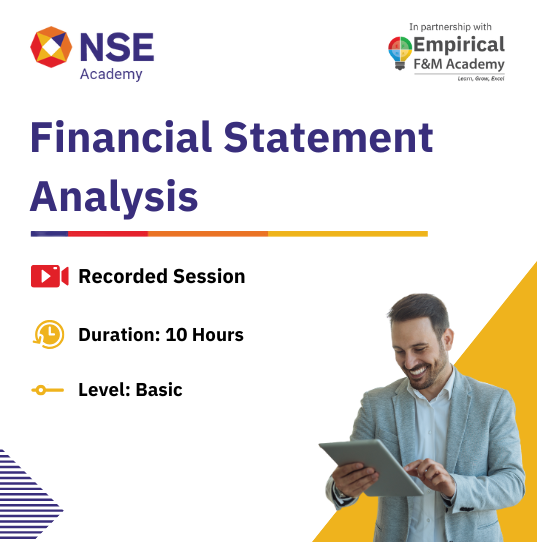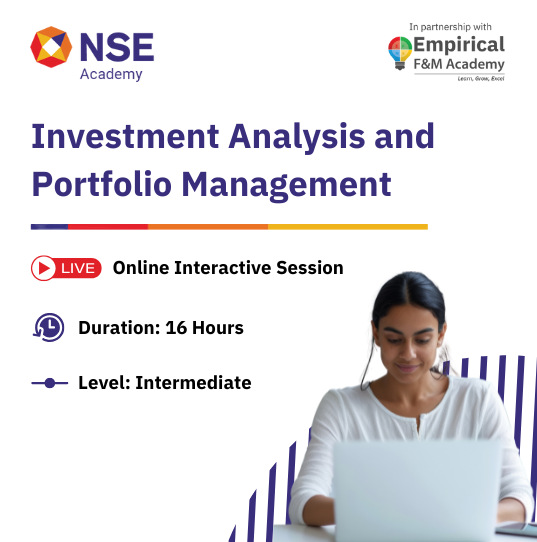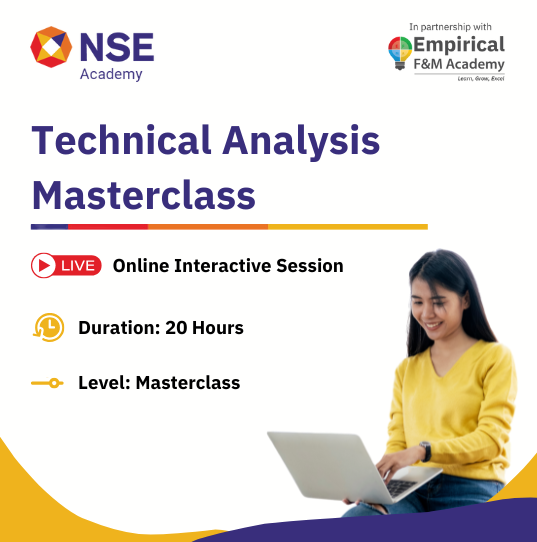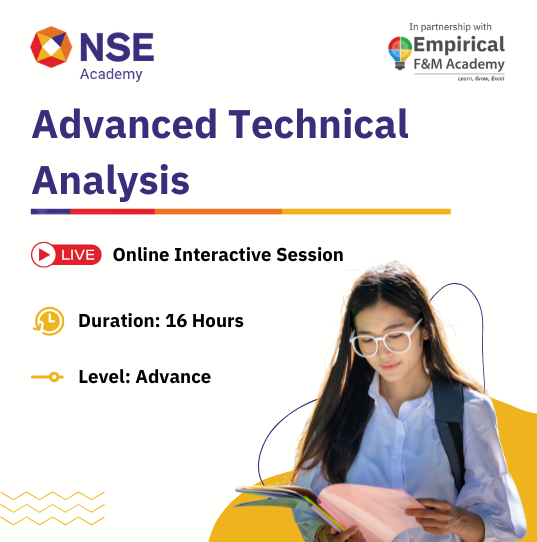Advanced Equity Research and Valuation
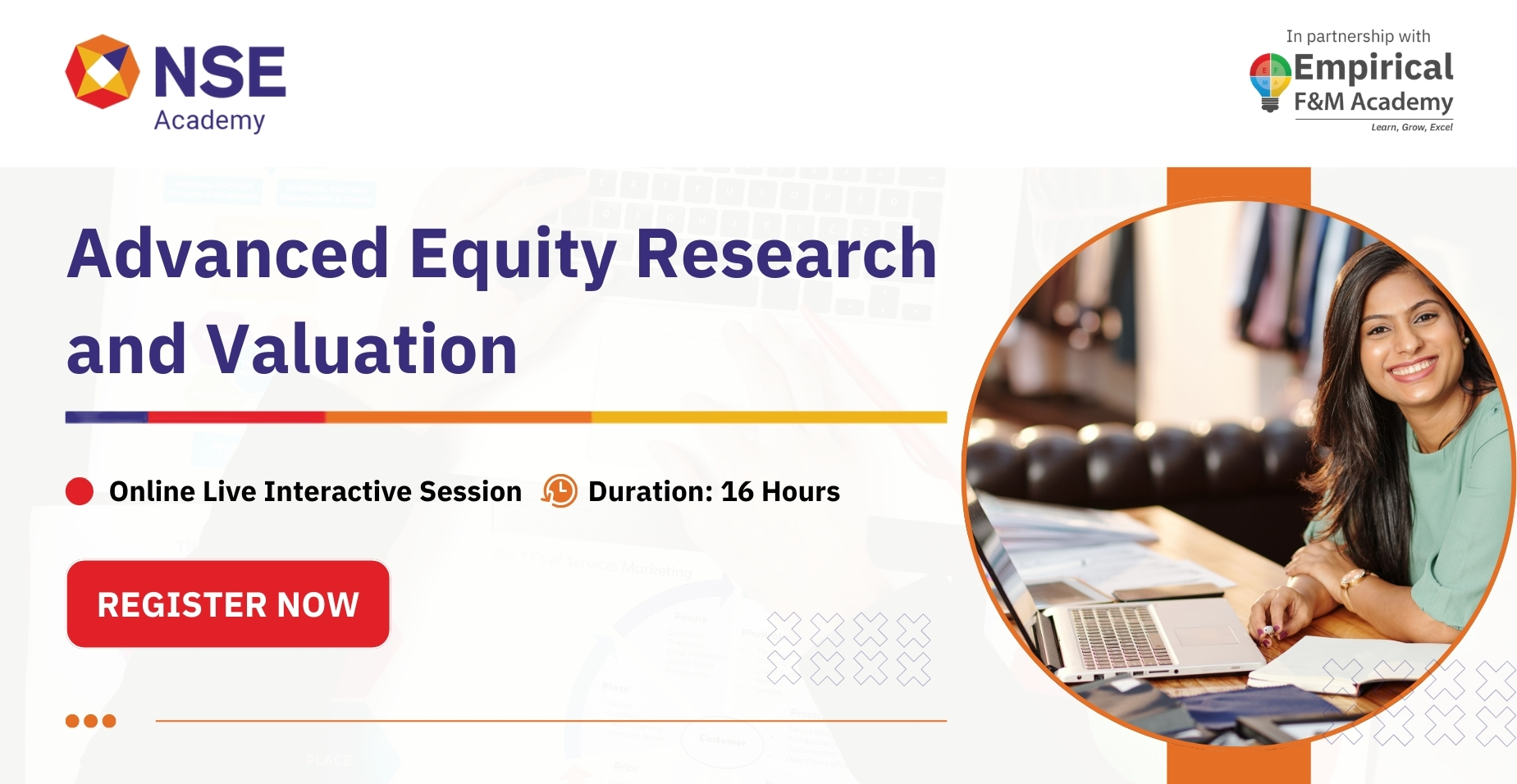
Advanced Equity Research and Valuation
LIVE TRADING
- Identify and trade with single and multiple candlestick patterns such as Marubozu, Hammer, Hanging Man, and Shooting Star.
- Trade using support resistance and automate chart patterns such as head and shoulder, double top and bottom, triple top and bottom.
- Learn the basics of time series analysis, ARIMA and GARCH models, gamma scalping, options contracts and how to make delta-neutral portfolios.
- Define different models such as momentum, breakout, swings and floor and ceiling. Also, Swing trade using MACD and Williams Fractals.
- Apply and trade with the trend, volume and market breadth indicators.
- Predict trends, manage risks, and analyse the performance of trading strategies.
- Calculate transaction costs and slippage, and live trade your strategy.
SKILLS COVERED
LEARNING TRACK 2
-
Multi Commodity Exchange
-
QuantInsti®
-
Laurent Bernut
Course Curriculum
- INVESTMENT LANDSCAPE
- Investors and their Financial Goals
- Savings or Investments?
- Different Asset Classes
- Investment Risks
- Risk Measures and Management Strategies
- Behavioral Biases in Investment Decision Making
- Risk Profiling
- Understanding Asset Allocation
- Do-it-yourself versus Taking Professional Help
- CONCEPT AND ROLE OF A MUTUAL FUND
- Concept of a Mutual fund
- Classification of Mutual Funds
- Growth of the mutual fund industry in India
- LEGAL STRUCTURE OF MUTUAL FUNDS IN INDI
- Structure of Mutual Funds in India
- Key Constituents of a Mutual Fund
- Organization Structure of Asset Management Company
- Role and Support function of Service Providers
- Role and Function of AMFI
- LEGAL AND REGULATORY FRAMEWORK
- Role of Regulators in India
- Role of Securities and Exchange Board of India
- Due Diligence Process by AMCs for Distributors of Mutual Funds
- Investor Grievance Redress Mechanism
- AMFI Code of Conduct for Intermediaries
- SCHEME RELATED INFORMATION
- Mandatory Documents
- Non-Mandatory Disclosures
- FUND DISTRIBUTION AND CHANNEL MANAGEMENT PRACTICES
- The role and importance of mutual fund distributors
- Different kinds of mutual fund distributors
- Modes of distribution
- Pre-requisites to become Distributor of a Mutual Fund
- Revenue for a mutual fund distributor
- Commission Disclosure mandated by SEBI
- Due Diligence Process by AMCs for Distributors of Mutual Funds
- Difference between distributors and Investment Advisors
- Nomination facilities to Agents/Distributors and Payment of Commission to Nominee
- Change of distributor
- NET ASSET VALUE, TOTAL EXPENSE RATIO AND PRICING OF UNITS
- Computation of Net Assets of Mutual Fund Scheme and NAV
- Concept of Entry and Exit Load and its impact on NAV
- NAV, Total expense ratio and pricing of units for the Segregated Portfolio
- TAXATION
- Applicability of taxes in respect of mutual funds
- Capital Gains
- Dividend income
- Stamp Duty on Mutual Fund Units
- Setting off of Capital Gains and Losses under Income Tax Act
- Securities Transaction Tax
- Tax benefit under Section 80C of the Income Tax Act
- Tax Deducted at Source
- Applicability of GST
- INVESTOR SERVICES
- The NFO process
- New Fund Offer Price/On-going Offer Price for subscription
- Investment Plans and Services
- Allotment of Units to the Investor
- Account statements for investments
- Mutual Fund Investors
- Filling the Application Form for Mutual Funds
- Financial Transactions with Mutual Funds
- Cut-off Time and Time Stamping
- KYC Requirements for Mutual Fund Investors
- Systematic Transactions
- Operational aspects of Systematic Transactions
- Non-Financial Transactions in Mutual Funds
- Change in Status of Special Investor Categories
- Investor transactions – turnaround times
- RISK, RETURN AND PERFORMANCE OF FUNDS
- General and Specific Risk Factors
- Factors that affect mutual fund performance
- Drivers of Returns and Risk in a Scheme
- Measures of Returns
- SEBI Norms regarding Representation of Returns by Mutual Funds in India
- Risks in fund investing with a focus on investors
- Measures of Risk
- Certain Provisions with respect to Credit risk
- MUTUAL FUND SCHEME PERFORMANCE
- Benchmarks and Performance
- Price Return Index or Total Return Index
- Basis of Choosing an appropriate performance benchmark
- Benchmarks for equity schemes
- Benchmarks for Debt Schemes
- Benchmarks for Other Schemes
- Quantitative Measures of Fund Manager Performance
- Tracking Error
- Scheme Performance Disclosure
- MUTUAL FUND SCHEME SELECTION
- Scheme Selection based on Investor needs, preference and risk-profile
- Risk levels in mutual fund schemes
- Scheme Selection based on investment strategy of mutual funds
- Selection of Mutual Fund scheme offered by different AMCs or within the scheme category
- Selecting options in mutual fund schemes
- Do’s and Don’ts while selecting mutual fund schemes
Copyright © By Empirical F&M Academy. Design & Developed by Techno Duniya

